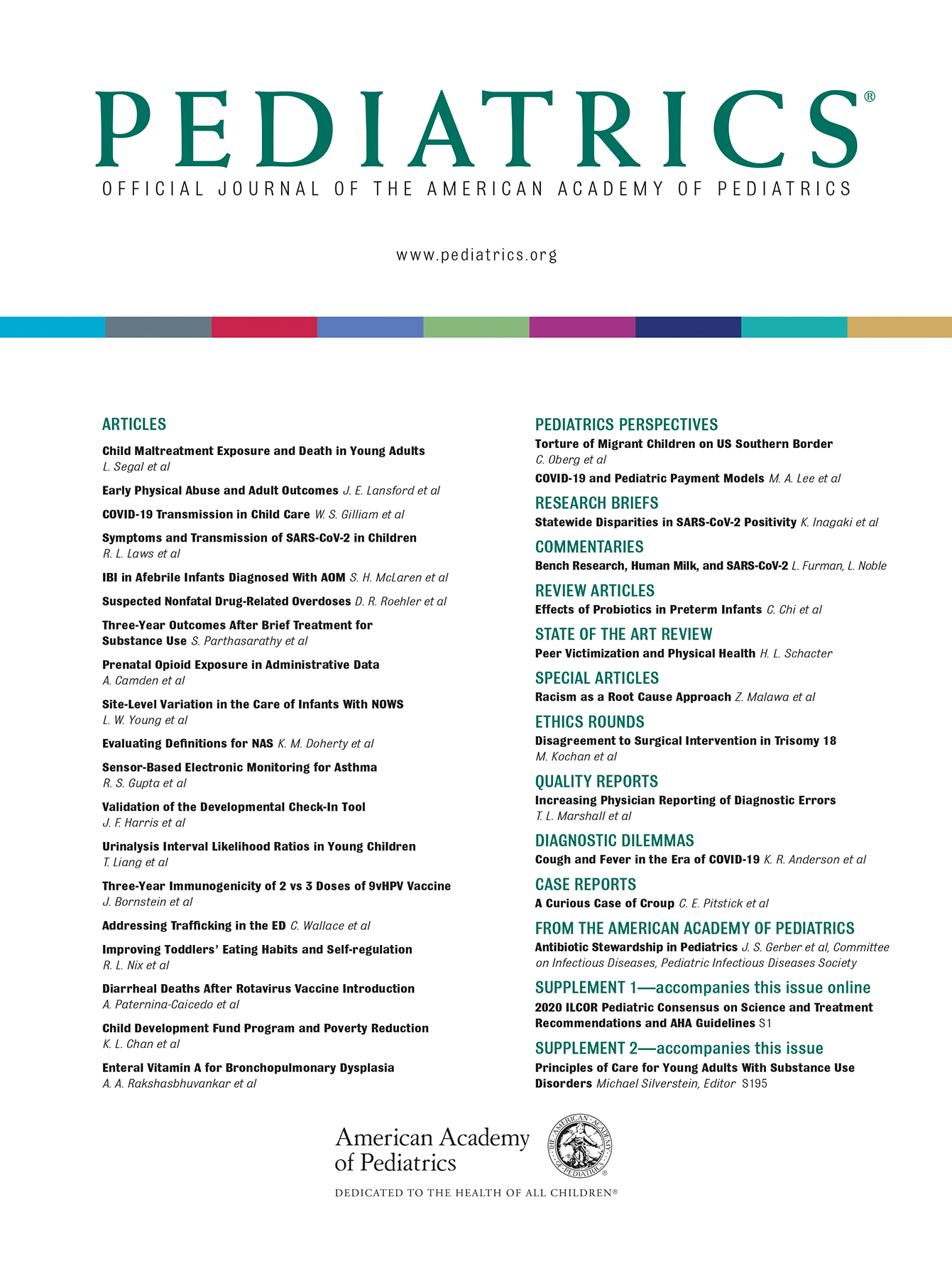One of the enduring questions in the United States today is whether the perennial problem of health disparity should be viewed through race-conscious or race-neutral lenses. Those who argue for the former point to the mounting empirical evidence of poor health outcomes among children of minority race and ethnicity, irrespective of the health metric.1,2 Others who argue for the latter contend that race is an imprecise variable for evaluating health outcomes because it strongly correlates with several theoretical social constructs, including household income, housing, and geographical location.3,4
In this issue of Pediatrics, Schiff et al5 performed a scoping review of the literature on perinatal opioid exposure, emphasizing the reporting of racial or ethnic disparities. Examining published studies on maternal opioid use disorder (OUD) is a worthwhile clinical question, given its rising prevalence and the concomitant increase in neonatal opioid withdrawal syndrome. Improving our understanding of the racial disparity in the consequences of maternal OUD furthers the importance of this scoping review. The authors, somewhat apologetically, concluded that addressing structural racism requires future studies to prioritize the inclusion of participants of minority race and ethnicity.5
The bigger questions are whether investigators are beholden to report race and ethnicity or, if they do, whether they should be required to justify the inclusion of such variables.6 Although a “yes or no” may appear to suffice, the issue is not that simple. On the one hand, anything that requires justification suggests illegitimacy. On the other hand, mandating the inclusion of race and ethnicity data may be viewed as editorial imperialism.
The more practical answer addresses what investigators should not do. First, researchers must avoid ascribing biological explanations to observed racial or ethnic differences. Second, as the “gatekeepers of biomedical knowledge,” journal reviewers and editors need to be vigilant for scholarly materials espousing unsubstantiated genetic or biological causality to racial variations in health outcomes.7
Using race or ethnic origin for group stratification is simultaneously simple and complex. Simple because it is an intuitive method of “people sorting,” which would have been a benign concept if not for systemic racism. People sorting is benign because it acknowledges variability in human phenotype. Sorting people by physical attributes is quick and cheap (it only requires eyes with decent visual acuity). However, sorting by racial categorization is complex because it encapsulates lifelong, sometimes generational societal experiences, which often have health and fiscal implications.8 Indeed, implicit in the original classification of people by race were two civil statuses: free or slave and taxed or untaxed.8 Thus, people sorting along racial lines in the United States had from the beginning the inherent concept of racism.
Some investigators have suggested discontinuing race-based investigations, arguing that race is often arbitrarily measured.9 Abandoning stratification by race because of imperfect measurement would be akin to “kicking the can down the road” and do anything but address racial disparities in health care outcomes. On the contrary, it is essential to promote race-conscious studies, especially those geared toward identifying potentially modifiable factors. Schiff et al’s finding that only 169 studies out of 2023 reported on race and ethnicity illustrates the urgent need for more studies exploring racial and ethnic disparities.
Since it is impossible to transition from one racial group to another, evaluating the association of racial grouping with health outcomes is a legitimate clinical endeavor. To promote the dissemination of well-designed race-conscious investigations, journal editors should provide clear guidelines that lead investigators to ask the appropriate research questions. The Author and Reviewer guidelines provided by Pediatrics is a good example of this process. Instructions to authors must include specific language for racial categorization so that investigators understand what is acceptable. An obstructive editorial process for race-conscious research may push investigators simply to delete race and ethnicity variables or disincentivize prospective investigators to embark on racial disparity research. If such unintended consequences occur, it is possible that another scoping review performed a decade from now will still be calling for more race-conscious studies. The work by Schiff et al is a clarion call that we must all heed. The time to act is now.
FUNDING: No external funding.
COMPANION PAPER: A companion to this article can be found online at www.pediatrics.org/cgi/doi/10.1542/peds.2021-052368.
References
Competing Interests
CONFLICT OF INTEREST DISCLOSURES: The authors have indicated they have no potential conflicts of interest to disclose.






Comments